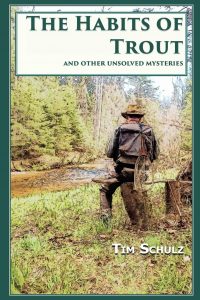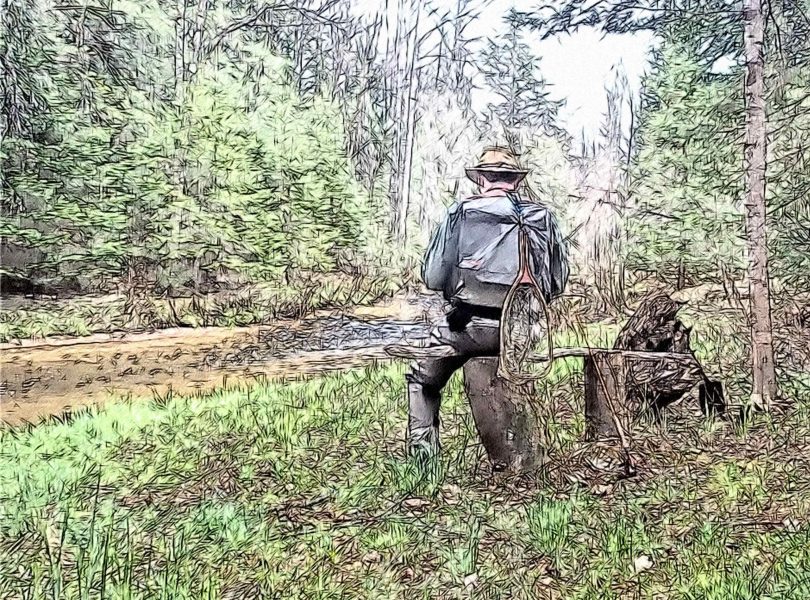
Tim Shultz and Will Cantrell generously shared their knowledge on Husky Bites, a free, interactive Zoom webinar hosted by Dean Janet Callahan. Here’s the link to watch a recording of his session on YouTube. Get the full scoop, including a listing of all the (60+) sessions at mtu.edu/huskybites.

What are you doing for supper this Monday 3/29 at 6 ET? Grab a bite with Dean Janet Callahan and Tim Schulz, University Professor of Electrical and Computer Engineering. Prof. Schulz teaches electrical engineering at Michigan Tech, fishes for trout throughout Michigan’s Upper Peninsula, and plays guitar and writes songs in his spare time. He is the author of The Habits of Trout: And Other Unsolved Mysteries, a collection of essays about fishing.
Joining in will be Will Cantrell, associate provost and dean of Michigan Tech’s graduate school. Dean Cantrell is also a professor of Physics. His research focuses on atmospheric science, particularly on clouds. In the summer, he goes fly fishing, occasionally tying some of his own flies.

During Husky Bites, Schulz will share the story of how he came to write his book, The Habits of Trout. It all began with a quest to explore the rugged backwoods environs where another author, John Voelker, found an abundance of wild trout and a dearth of crowds.
Schulz first came to Michigan Tech in 1992 as an assistant professor. He earned a National Science Foundation CAREER Award, and then served as chair of the Department of Electrical and Computer Engineering. Schulz was appointed Dean of the College of Engineering at Michigan Tech in 2007, then returned to the ECE department five years later as a professor. In 2019 Schulz was named a University Professor, a title recognizing faculty members who have made outstanding scholarly contributions to the University and their discipline over a substantial period of time.
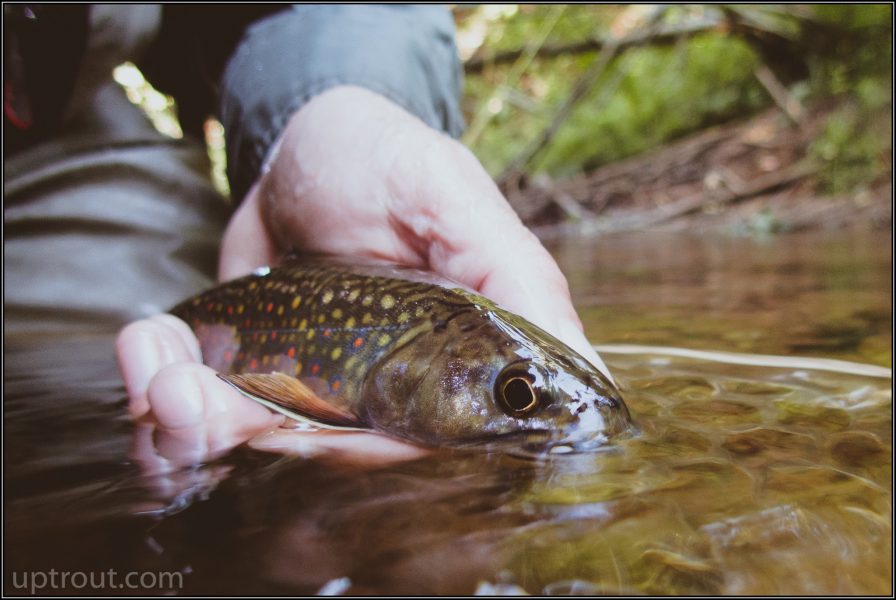
As a teacher, Schulz is widely acknowledged as one of the ECE department’s best, with his friendly, humorous style and his devotion to his students’ learning. He’s also a leader in using technology to deliver technical material in electrical and computer engineering.
“There was a time when I believed I could solve the mysteries of trout in particular and of life in general. But now I think we sometimes need to get skunked. We need to break our line on a good fish every now and again, and sometimes we need to cast all day without a take. We need to be grounded by the humility of failure so we can be lifted by the hope of success.”
Starting in 2012, Schulz created a series of videos collectively titled “Electric Circuits” and posted them on YouTube. Though he created them with his EE2111 (Electric Circuits 1) class in mind, they are reaching a much wider audience. All combined, his educational videos have had over one million views on YouTube. One, “Thevenin Equivalent Circuits” has gotten more than 162,763 views. Since that time, Schulz developed a phone app of randomized electric circuit problems to use in this course, too.
As a researcher, Schulz applies statistical signal-processing techniques to computational imaging and signal analysis. His methods have been used to clarify images from the Hubble Space Telescope and to miniaturize high-quality cameras for military surveillance and commercial applications. Shortly after the launch of the Hubble Space Telescope, Schulz applied image processing methods to de-blur and improve images taken with the flawed telescope.
When and how did you discover a love of fly fishing? Did anyone teach you how?
Tim: One of my mom’s friends gave me a cheap fly rod when I was a kid, and I used that for bluegill. But I didn’t get serious about fly fishing in general, and fly fishing for trout in particular, until about 25 years ago when my wife Roxanne bid on fly fishing lessons that Ray Weglars donated to benefit a local art gallery. She has second guessed that ever since.
Will: I helped my neighbor down the street, Lou Owen, with something. I think maybe it was his garage door opener. He insisted that I “take something” for my trouble. He ended up taking me fly fishing. That was my first experience with it. He showed me the basics. After that, I was self taught, and have no doubt taught myself some bad habits, especially with casting.
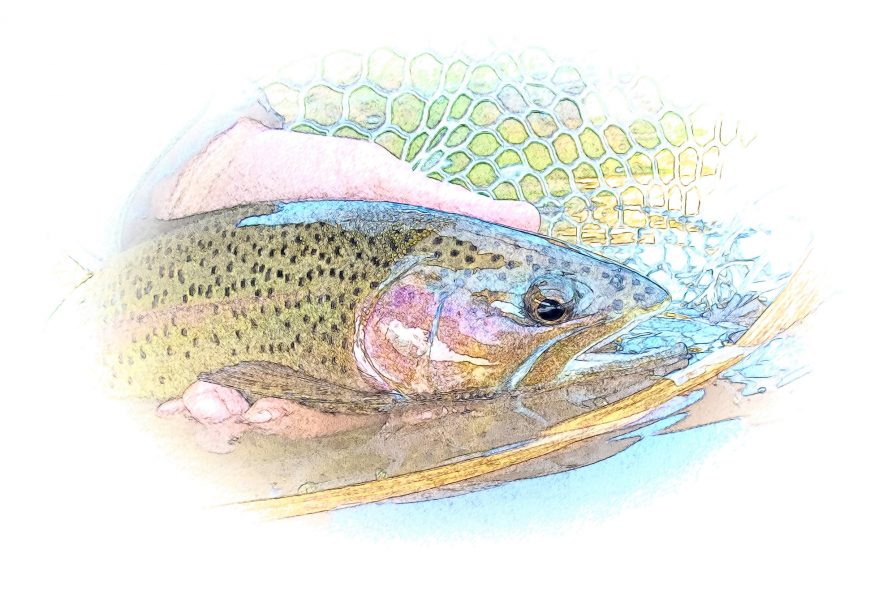
Do you ever find yourself thinking about your research while you are out fishing?
Tim: Sometimes, but not a lot. Mostly, I think about the flora, the fauna, and the fish.
Will: Usually, when I’m fishing, I am thinking about the fish that’s rising, or where it might be if there’s not a fish rising, or how to get a fly to drift without dragging despite the three crosswise currents between me and where I want the fly…I am more likely to think about research problems when I’m walking the river to get where I will be fishing.
For those who have never ever tried it, what’s a good way to get started?
Tim: Go to a good fly shop and have them set you up. A good guide is invaluable for helping you get started. And read all you can on the subject. If you have a friend who fly fishes, take them to dinner, buy them beer, whiskey, or anything else they like. Fly anglers are secretive, but they have weaknesses, and they can be bought.
Will: Most fisherpeople will show you one or two spots that everyone knows about. What Tim suggests is probably the most reliable way.
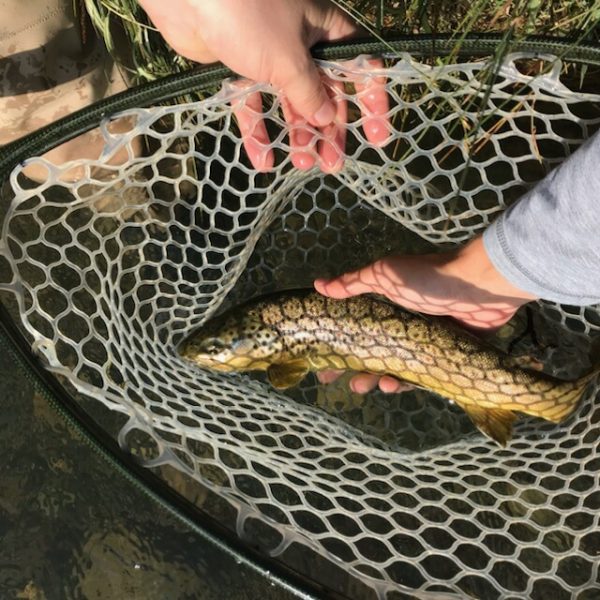
the Uncompahgre in Colorado,” says Cantrell.
How do you deal with the mosquitos and the biting insects?
Tim: From my chest down, I’m protected by waders. I always wear long sleeve shirts, and my wide-brim hat has been sprayed with bug-dope so much that the EPA has classified it as a minor environmental hazard. Also, if you do this long enough, you’ll learn to extend your lower lip in front of your upper lip and blow the bugs off your face. It really works.
Will: Badger Balm. Long sleeve shirt. If the bugs are biting you, there are also bugs on the water. Trout feed on bugs. I am much less bothered by biting insects when I’m casting to a rise that I think might be grandfather trout!
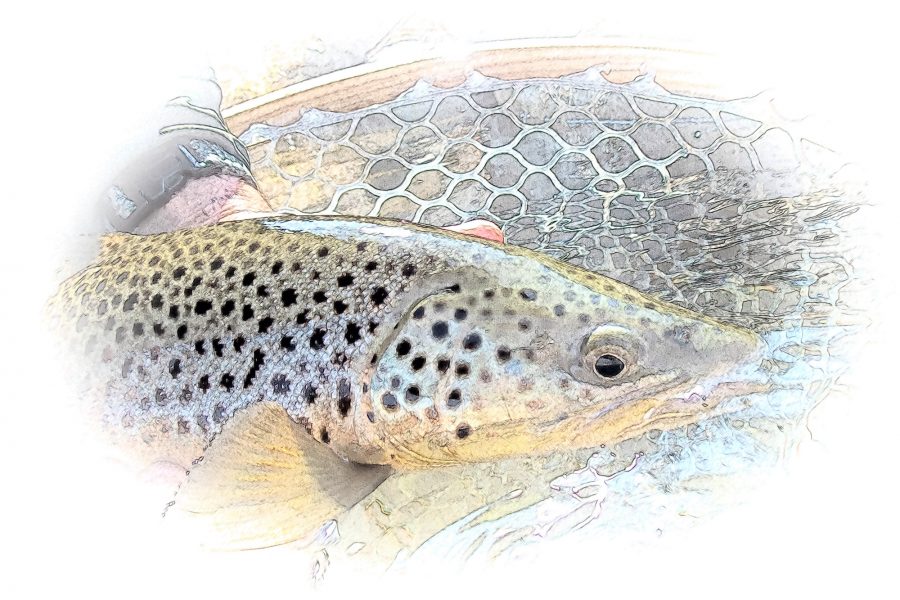
In terms of fly fishing, what is your greatest strength? Your greatest weakness?
Tim: My greatest strength? Patience. I’m really good at sitting on a log or a rock and waiting for a fish to start feeding. I can do it for hours. Most of the big fish I’ve caught have been because of that. My greatest weakness? Patience. I’m really good at sitting on a log or a rock and waiting for a fish to start feeding. I can do it for hours. Most of my fishless days have been because of that.
Will: My greatest weakness? Patience, lack thereof. I almost never do what Tim describes!
Word to the wise: Be careful if you decide to check out Madness and Magic, Prof. Schulz captivating blog. You may easily become hooked!
